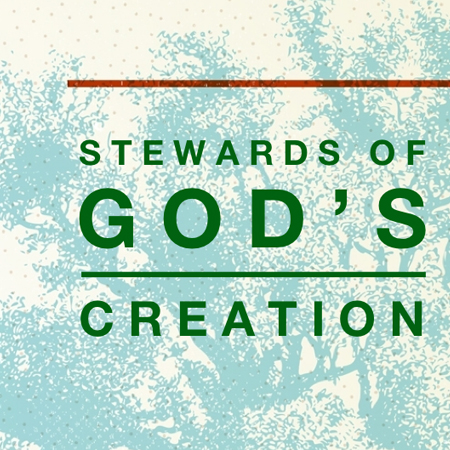Stewards of Creation
Romans 1:21–25 (NLT) 23 And instead of worshiping the glorious, ever-living God, they worshiped idols made to look like mere people and birds and animals and reptiles. 24 So God abandoned them to do whatever shameful things their hearts desired. As a result, they did vile and degrading things with each other’s bodies. 25 They traded the truth about God for a lie. So they worshiped and served the things God created instead of the Creator himself, who is worthy of eternal praise! Amen.
Personal stewardship is what we do with what we have.
A steward is a manager, not an owner.
The goal of a biblically-grounded framework on stewardship is to challenge and encourage us as believers to align our calling and lives on kingdom outcomes that bring glory to God. this calls for…
an understanding of who is master
an acknowledgement that all we have is of grace, and
a commitment to align our calling and lives on kingdom outcomes that bring glory to God
John Stackhouse – “Need to Know”: stated aim is to provide a model for Christian thinking—ie how to think, as a Christian. Our vocation is “the divine calling to be a Christian in every mode of life”.
His thesis fits with our overall goal of considering a biblically grounded framework that challenges and encourages us as believers to align our calling and lives on kingdom outcomes that bring glory to God.
Put simply, to think and live Christianly when it comes to stewardship…
Think about that re Stewardship of Creation –
Background to Stewardship of Creation
Remarkable book 1915 Bailey The Holy Earth. The “dominion over every living thing” taken from the Christian Bible has too often been used to justify exploitation, greed, and waste rather than careful utilization and sound husbandry.
… he decries how mankind is “mortgaging the future” and “burdening the shoulders of generations yet unborn.” … it was spiritually toxic.
1954 theologian Joseph Sittler – A Theology of the Earth – predicted the rise of non-Christian eco-theologies which would fill the vacuum that the church left void.
Barriers to Stewardship of Creation
When we think Christianly we think prophetically with the Second coming of Jesus and the new heaven and new earth. Berry explains how this can be problematic when it comes to stewardship of creation:
“Apocalyptic understanding of the future that leads to neglect or even despise environmental care since they are waiting for the ‘new heaven and new earth’ with the imminent return of the Messiah.” Berry
Lyn White paper ‘The Historic roots of our ecological crisis’ Science 1967. White laid blame for environmental damage squarely on the Genesis mandate for humans to ‘have dominion’ over the rest of living things.
Biblical claim that humans have dominion over creation has shaped the typically western view of nature: that the natural world exists solely to meet human needs.
Protestant divide with Catholicism and Franciscan conservation vs Benedictine stewardship.
Biblical Framework
The pragmatic view posits that we should be good stewards over God’s world because our very survival depends on it.
Genesis 1:1 It “sets forth in the fewest words the elemental fact that the formation of the created earth lies above and before mankind, and that therefore it is not man’s but God’s”
Christopher Wright The Mission of God argues that our mission (if it is biblically informed and validated) means our committed participation as God’s people, at God’s invitation and command, in God’s own mission within the history of God’s world for the redemption of God’s creation.
Deuteronomy 10:14 (ESV) 14 Behold, to the Lord your God belong heaven and the heaven of heavens, the earth with all that is in it.
Psalm 24:1 (ESV) 1 The earth is the Lord’s and the fullness thereof, the world and those who dwell therein,
Job 41:11 (ESV) 11 Who has first given to me, that I should repay him? Whatever is under the whole heaven is mine.
The Earth is the Lord’s (He made it)
At the very least this reminds us that it is not ours. He is the landlord. We are the tenants. As in any landlord-tenant relationship, God holds us accountable to himself for how we treat his property.
The goodness of creation cf Psalm 19 points to a good creator.
Wright “That being the case we might suggest an analogy to the Text “He who oppresses the poor shows contempt for their Maker” Prov 14:31 along the lines of “He who destroys or degrades the earth spoils its reflection of its maker”
Our treatment of the earth reflects our attitude to its maker and the seriousness with which we take what he has said about it.
Need to be careful that our value of the earth is not in its ability to supply our need, but in the glory giving value of the earth to God.
The Sanctity (not divinity) of Creation
The sanctity of creations speaks of its essential relatedness to God, not of creation being divine.
The bible makes a clear distinction between God the Creator and all things created. Nothing in creation is in itself divine. rules out nature polytheism or pantheism. Romans 1:21–25
God’s Glory as the goal of creation
The chief end of mankind is to glorify God and enjoy him forever – the shorter catechism of the Westminster confession. It would be equally biblical to ask exactly the same question about the whole of creation and to give exactly the same answer.
The creation exists for the praise and glory of its creator God and for mutual enjoyment. This is something we share with the rest of creation.
Psalm 19 says that although “there is no speech”, the heavens still “declare the glory of God”.
1 Chronicles 16:33 (ESV) 33 Then shall the trees of the forest sing for joy before the Lord, for he comes to judge the earth. Isa 55:12
God’s Redemption of the whole creation
So far we’ve been thinking about how important it is to include the Bible’s strong doctrine of creation in our thinking about the earth – what we do with it, how we live on it and what it was created for. The bible teaches us not only to value the earth by looking backwards – where it came from or who it came from – but also because of its ultimate destiny.
Isaiah 11:1-9; 65:17-25 lays the foundation for our New Testament hope where we look forward to a new and redeemed creation (Romans 8:18-21) in which righteousness will dwell (2 Peter 3:10-13) because God himself will dwell there with his people (Rev 21:1-4).

